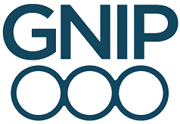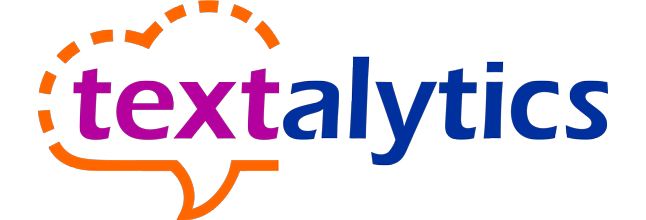Workshops
The program of Wednesday, March 5, 2014 Human Analytics workshops is outlined on this page. The workshops are your way to learn from experts about the solutions and technologies you need to compete in today's high-velocity, hyper-competitive business climate.
Visit the Symposium Agenda page for information on the March 6, 2014 conference presentations and panels. Reminder: Attend either day or both.
Business Track
Insider's Guide to Social Media MeasurementMorning workshop: 9:00 am to 12:30 pm
 Instructor: Stephen Rappaport, the Advertising Research Foundation, @SteveRappaport, @The_ARF
Instructor: Stephen Rappaport, the Advertising Research Foundation, @SteveRappaport, @The_ARF
Welcome to the world of "humetrics." Workshop instructor Stephen Rappaport coined that term to describe the big shift from our industry's age-old preoccupation with media measurement to understanding people by gauging and interpreting their digital lives. Rappaport's forth-coming "Digital Metrics Field Guide" (from which this workshop description is derived) helps us recognize data points not merely as impersonal dots on a trend line, percentage changes, or ratios. They are, in fact, personal -- capturing what people say, do and feel in real time. Once we view digital metrics as reflecting individuals, they become characters we employ to craft compelling narratives about people and brands that we later share with our colleagues in and outside of our areas. Those narratives fortify brands with a common understanding that increases the potential to act in the best interests of customers and prospects, and to create and execute successful marketing strategies.
The Insider's Guide to Social Media Measurement will have four sections:
- introduction and overview of social media measurement
- case studies illustrating the use of social media measures (with audience participation and comments)
- hands-on workshop. We will present three typical business scenarios and have the attendees work through them, including developing an analytic strategy, measurement plan, etc.
- wrap-up and final Q&A
Stephen Rappaport will be joined in presenting the workshop by Vincent Santino, Associate Director of Digital Insights & Analytics at Kaplan Test Prep; Peter Fontana, Research & Insights Director at the social media agency We Are Social; and Maribel Lara, Account Director at M80.
The Road to Customer IntelligenceAfternoon workshop: 1:30 pm to 5:00 pm
 Instructor: Steve Ramirez, CEO, Beyond the Arc, @BeyondTheArc
Instructor: Steve Ramirez, CEO, Beyond the Arc, @BeyondTheArc
The Road to Customer Intelligence: Data, Analytics, Insight
Customer intelligence is the key to deeper and more profitable customer relationships, an essential asset for strategic, competitive decision making. How do you get there? The Road to Customer Intelligence: Data, Analytics, Insight, taught by industry leader Steve Ramirez, will teach you how.
The Customer Intelligence workshop will offer a thorough, practical look at elements that business analysts, managers, and executives must master to compete in today’s hyper-competitive, high-velocity, Big Data world: Unstructured Data, Voice of the Customer, Social Customer Insights, and Predictive Analytics.
How much of your data is your organization using to create insights about your customers? For many companies, an explosion of unstructured data sources like support email, call center notes, and social media, hasn't resulted in a corresponding windfall of better customer understanding, much less an improved customer experience or increase in revenues.
The phenomenon of Big Data has captured the imaginations of executives across industries. This workshop will examine a data-science case study. This cutting-edge Big Data analysis married text analytics of unstructured customer feedback, large-scale processing of transaction data, and the application of machine learning algorithms to identify which customer experience issues were most likely to drive churn, and for whom.
Yet text analytics and data analysis tools are only one piece of the puzzle. Without the right Voice of the Customer strategies in place, you’ll wind up with a handful of reports… and little else.Learn from the best practices of some of the most mature and successful Voice of the Customer programs. As a workshop participant, you will be introduced to a straightforward methodology you can deploy immediately.
Key takeaways include:
- How to benchmark your customer experience, marketing, and social insights efforts
- How to accelerate the maturity of your program, helping you to deliver greater value to your internal business partners
- How to prioritize your data acquisition and data management efforts
- What types of analyses you can perform to obtain the richest insights
If you've been challenged with how to derive real, demonstrable ROI from your VOC program, the Customer Insight Analytics workshop is for you.
Technical Track
Practical Sentiment AnalysisMorning tutorial: 9:00 am to 12:30 pm
 Instructor: Jason Baldridge, Univ of Texas and People Pattern, @JasonBaldridge
Instructor: Jason Baldridge, Univ of Texas and People Pattern, @JasonBaldridge
The Practical Sentiment Analysis tutorial will introduce the concepts of sentiment analysis and opinion mining from unstructured text, looking at why they are useful and what tools and techniques are available. The tutorial is designed for advanced users, developers, consultants, and others who seek to understand the technology behind the tools they're using (or hope to build).
Tutorial Description
People use language to communicate not just ideas, but also to selectively reveal their internal mental and psychological life. By expressing opinions about ideas, people, and products, a person conveys secondary information about their personality, their values, and their background. Some of this secondary information is explicitly coded in the message, e.g. saying "I love hiking" sends the clear message that the speaker is an outdoorsy sort; however, other properties of the speaker can be gleaned from the general topics they discuss and from their sub-conscious linguistic expression, such as introversion and status.
Opinion mining is (by now) a well-known natural language processing technique that generally focuses on the explicit portion of opinion expression. Given the great volume of text created and readily accessible online, tremendous value can be derived from this level of analysis, especially for marketers, political campaigns, and the like. Opinion mining itself takes many forms depending on the granularity of analysis desired, from the most basic determination of whether a given document is generally positive or negative to much more specific questions such as whether a given individual is strongly in favor of a given political position based on texts they've authored, their online behaviors and their social network.
This tutorial will dive below the surface of opinion mining in three primary ways. First, we focus on some of the underlying algorithms and the opportunities and challenges for the varied kinds of inputs and outputs involved. In particular, we will discuss semi-supervised learning techniques and their relevance for entity and topic extraction in combination with opinion mining. We will also cover the difference between features used for topic classification and sentiment analysis and those used for stylistic analysis (such as authorship determination). Second, we look at what additional information might be determined from non-explicit components of linguistic expression, as well as non-textual aspects of the input, such as social networks, sensors, and other secondary data. Third, we will also consider issues in the empirical evaluation of automated opinion mining tools.
Tutorial Outline
- Introduction. Brief overview of opinion mining, including motivation and many of the core challenges.
- Machine learning basics. Intuitive overview annotation and learning for text classifiers.
- Aspect-based opinion mining. Identifying the entities and topics that opinions have been expressed about, and building more granular models to analyze them.
- Implementation. From simple bag-of-words algoritms based on sentiment lexicons to full text processing pipelines.
- Evaluation and visualization. Different measures of performance, inter-annotator agreement, and caveats when interpreting performance claims. Visualization techniques for opinion mining.
- Building models with less human supervision. Learning from clusters, features and instances and active learning.
- Going beyond text: social networks, sensors, behaviors, third-party data, audio, and video.
- Further analysis and issues. Predicting authorship, demographics, psychographics, and location. Characterizing and measuring influence, relevance, veracity, advocacy, and volatility. New models for analysis.
Previous tutorials have been taught by Ronen Feldman of the Hebrew University (May 2013); Diana Maynard, research fellow at the Univ. of Sheffield, UK (November, 2012); Bing Liu of the University of Illinois at Chicago (May 2012; Christopher Potts of Stanford University (November 2011); and staff from eBay Research Labs (April 2011).
Technology & InnovationAfternoon presentations & panels: 1:30 pm to 5:00 pm
Session 1 (1:30 pm - 2:55 pm)
- Using Apache Hive for Sentiment Analysis
(mouseover here for description)
Rajat Jain, Qubole - Sequence Package Analysis and Sentimetrics
(mouseover here for description)
Amy Neustein, Linguistic Technology Systems - Evaluating Sentiment Analysis Evaluation
(mouseover here for description)
Gerald Penn, University of Toronto - Compositional Sentiment Analysis
(mouseover here for description)
Stephen Pulman, Oxford University
Session 2 (3:20 pm - 5:00 pm)
- Emotions are mixed: identifying and visualizing the emotions of topics in public discourse
(mouseover here for description)
Jennifer Carlson, Decisive Analytics Corporation - Sentiment Analysis by Ensemble Post-Processing
(mouseover here for description)
Mark Gingrich, SDL - Contextual Sensing and Sentiment Classification
(mouseover here for description)
Adrienne Andrew, ARO, Inc. - Analyzing user behavior to add context to sentiments: Community structure mining for user role identification
(mouseover here for description)
Robert Nolker, Analyze - Beyond Sentiment: Context-aware emotion modeling for customer insights
(mouseover here for description)
Moritz Sudhof, Kanjoya














